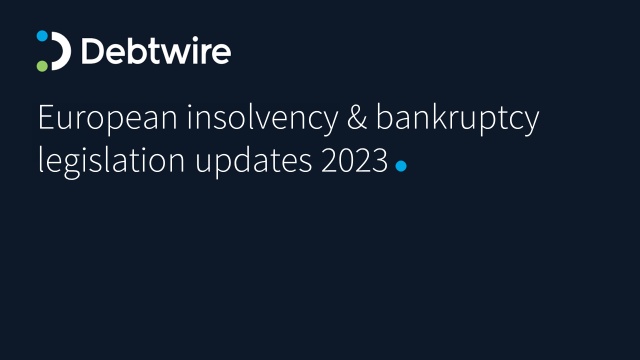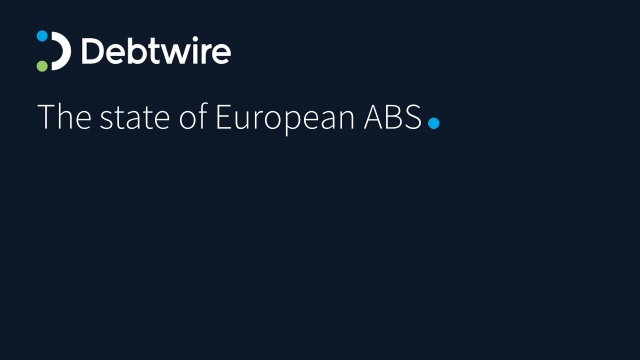Registration & networking breakfast
Keynote presentation: European restructuring outlook 2023
In this keynote presentation, Deloitte will review the findings of their new report, published in partnership with Linklaters and Debtwire, highlighting the outlook for the European distressed and restructuring market in 2023.
Keynote panel: 2023 European distressed & restructuring outlook
Record high inflation has forced central banks across the world to take drastic action with regards to interest rates and subsequently the end of the era of cheap credit in Europe as the continent braces itself for the inevitable looming wave of corporate restructurings. In this panel, speakers will reflect on some of the key takeaways from bankruptcy cases and legislative reforms across Europe over the past year and discuss the outlook for restructurings in 2023.
- What alternative financing solutions are leveraged capital markets professionals considering in the face of increased interest rates and a lack of cheap credit?
- Which legislative reforms will be most impactful in 2023 on distressed companies?
- What is the pipeline for distressed investors in Europe and emerging markets?
Coffee & networking break
Fireside chat: Sector focus - Energy
The energy retail market is in flux with Europe’s high dependency on Russian gas, soaring energy costs and the effect of this on consumers’ finances as well as the net zero agenda pushing the issue to crisis levels. In 2022, Ofgem made proposals which included three suggestions concerning financial resilience of energy companies including ringfencing customer credit balances, hedging and capital adequacy proposals. However, the market will be impacted by the rulings of the insolvency proceedings of energy companies to apply to the High Court in 2021 to review judgement on obligations of suppliers. This panel will discuss:
- Will the rulings for the 2021 insolvent energy companies impact legislation for energy companies in distress now?
- What rescue opportunities are available to struggling energy companies?
- What are the implications on debt holders of the Energy Transfer Scheme as seen in Octopus Energy’s take-over of Bulb in 2022?
Panel: European insolvency & bankruptcy legislation updates 2023
During the Covid-19 pandemic, many European countries reviewed and revamped their insolvency laws introducing both new temporary and permanent measures to aid companies in financial distress in this period. Many countries have retained temporary measures to support businesses whilst others are reforming insolvency regimes and adapting relief measures as business face the ‘return to normal’. This legal focused panel will discuss:
- Which countries are making notable reforms to insolvency regimes in the ‘return to normal’ post pandemic? Focusing on the UK, France, and Italy.
- How will these reforms affect large and small-scale insolvencies? Is the wave of European restructurings coming?
- How are the regime reforms swinging the balance of favour towards or against debtors and creditors?
Presentation: Spanish restructuring outlook
This presentation will review new insolvency laws in Spain and the outlook for restructurings in the country.
Panel: Geographic focus – Spanish restructurings
Leveraged loan issuance in Spain started off well at the start of 2022 but dropped significantly as Spanish activity moved in sync with the wider downturn across Europe due to multiple headwinds. The decline in the high yield space has been even more pronounced, with issuance down 80% year-on-year in the first half. The outlook remains challenging with high inflation and rising household prices. Experts expect to see a higher volume of restructurings following the close of an insolvency moratorium introduced by the Spanish government post-pandemic. The closure means that debtors and blocked creditors can now file for insolvency petitions against borrowers. This panel will discuss:
- Will M&A activity keep debt issuance active in 2023?
- Have restructuring situations peaked since the reforms to the country’s insolvency regime? What further legislation should we expect in 2023?
- Which sectors will prove most fruitful for debt issuance or restructuring opportunities for distressed investors? Which companies are LCM professionals keeping an eye on?
Networking lunch
Panel: The state of European ABS
After a decade of benign performance in European ABS, soaring inflation is squeezing household budgets and rising rates are pushing mortgage costs up and property valuations down. Liquidity in ABS and RMBS transactions stood up well to the liability-driven investment strategies in 2022, often performing better than corporate bonds. Experts expect tranche spreads and pricing on underlying loans to Client Confidential eventually level out with central banks encouraging more issuance in 2023. This panel will discuss:
- Which asset classes and jurisdictions are most exposed to the downturn?
- What opportunities are there for investors with the ability to take advantage of illiquidity?
- Which regulatory developments from the European Commission in its review of EUSR will be the most impactful?
Panel: Opportunities in CEEMEA distressed debt
In the current high interest rate environment, CEEMEA sovereigns and corporates are coming under significant pressure. The panellists will discuss whether higher rates will lead to a new wave of restructuring, and the outlook for CEEMEA high yield credit. The panel will also highlight the most attractive opportunities for distressed debt investors in the region.
Case studies: EMEA high yield to distress
Panellists will discuss case studies of several European high-yield companies that have become distressed since the second half of 2022 and who are activity restructuring their debt. The case studies will represent different geographies and sectors to demonstrate the valuable opportunities for distressed investors.
Two case studies will represent different geographies and sectors to demonstrate the valuable opportunities for distressed investors. Case studies will be:
- German real estate – the restructuring of Adler Group and the impact of monetizable assets in shaping bondholder outcomes. -
- Consumer sector – investing in distressed retailers such as Matalan, Lycra and Takko and the impact of bondholder groups in decision-making.
Confirm cancellation
An error occurred trying to play the stream. Please reload the page and try again.
CloseSign-up to join the ION Analytics Community to:
- Register for events
- Access market insights
- Download reports




 play_arrow
play_arrow




 play_arrow
play_arrow






 play_arrow
play_arrow



 play_arrow
play_arrow






 play_arrow
play_arrow

 play_arrow
play_arrow







 play_arrow
play_arrow




 play_arrow
play_arrow




 play_arrow
play_arrow



 play_arrow
play_arrow
 play_arrow
play_arrow






















